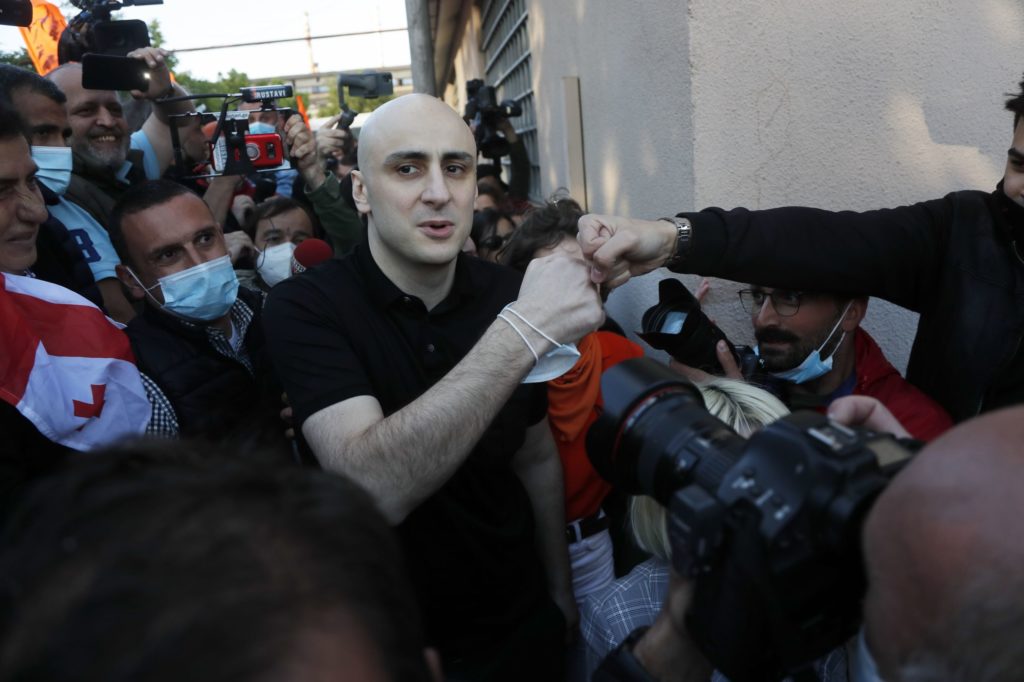TBILISI
Georgian opposition leader Nika Melia was released on Monday from pre-trial detention on 40,000 lari ($11,700) bail posted by the European Union (EU) in a bid to ease political tension in the ex-Soviet country.
Melia’s release was one of the conditions for implementing a EU-brokered deal to resolve a long-running crisis that has brought all political activity to a halt.
After months of EU-mediated talks, the government and some opposition leaders clinched an agreement in April, although some parties, including the biggest opposition group, the United National Movement (UNM), refused to sign. Two politicians from the parties concerned signed in a personal capacity.
The European Union hailed the agreement as a move to end a crisis that was threatening to derail the country’s already vulnerable economy.
Melia, the formal leader of the UNM, was arrested in February for refusing to post bail charge imposed on him after he ripped off a police monitoring device during a protest in November, soon after a parliamentary election denounced as unfair by government critics. He had earlier been charged with inciting violence during anti-government protests in June 2019, charges he said were politically motivated.
Melia initially said that he would not pay the bail set by the prosecutor’s office for his release as the signed agreement did not reflect the opposition’s main demand, a snap election to be held this year. Later he said he would accept the EU’s offer to post the bail.
It’s not clear whether Melia and other UNM members will enter parliament.
“I will only make the decision (to enter the parliament) after talking to each of my colleagues,” Melia told reporters after the release.
In a statement, the EU said posting the bail was “an important step taken to end the political crisis in Georgia.
The government and opposition have been trying to reach a consensus on ending the deadlock, with the EU dispatching a high-ranking diplomat to mediate. The EU expressed a measure of frustration with Georgia, saying that failure to reach an agreement could result in a suspension of its financial aid.
Opposition supporters have boycotted parliament and demanded a new election, saying that last year’s contest was rigged. The deadlock has paralysed a system already overwhelmed by the COVID-19 crisis, which has hit Georgia’s tourism-reliant economy especially hard.
Calls for Melia’s release pending his trial were another issue at the negotiating table as was the detention of Giorgi Rurua, an opposition supporter and a shareholder of pro-opposition TV channel Mtavari Arkhi.
Rurua, sentenced to four years in prison on weapons charges he denies – charges that he denied – was released in April after Georgia’s President Salome Zurabishvili pardoned him.
The anti-government protests presented Georgia with its biggest domestic challenge in years. International observers said last year’s vote was “competitive and, overall, fundamental freedoms were respected”, but they also cited pervasive allegations of pressure on voters and widespread reports of vote-buying.
The situation worsened when Prime Minister Giorgi Gakharia quit in February after a court issued an order to arrest Melia. Gakharia described the court order as dubious and warned of possible disorder in the country.

